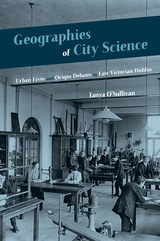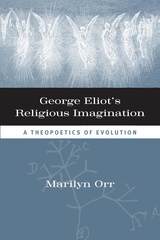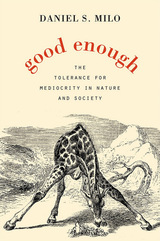3 start with G start with G

Dublin at the turn of the twentieth century was both the second city of the British Empire and the soon-to-be capital of an emerging nation, presenting a unique space in which to examine the past relationship between science and the city. Drawing on both geography and biography, Geographies of City Science underscores the crucial role urban spaces played in the production of scientific knowledge. Each chapter explores the lives of two practitioners from one of the main religious and political traditions in Dublin (either Protestant and Unionist or Catholic and Nationalist). As Tanya O’Sullivan argues, any variation in their engagement with science had far less to do with their affiliations than with their “life spaces”—domains where human agency and social structures collide. Focusing on nineteenth-century debates on the origins of the universe as well as the origins of form, humans, and language, O’Sullivan explores the numerous ways in which scientific meaning relating to origin theories was established and mobilized in the city. By foregrounding Dublin, her book complements more recent attempts to enrich the historiography of metropolitan science by examining its provenance in less well-known urban centers.

Orr’s wide-ranging and fascinating analysis situates George Eliot in the fertile intellectual landscape of the nineteenth century, among thinkers as diverse as Ludwig Feuerbach, David Strauss, and Søren Kierkegaard. She also argues for a connection between George Eliot and the twentieth-century evolutionary Christian thinker Pierre Teilhard de Chardin. Her analysis draws on the work of contemporary philosopher Richard Kearney as well as writers on mysticism, particularly Karl Rahner.
The book takes an original look at questions many believe settled, encouraging readers to revisit George Eliot’s work. Orr illuminates the creative tension that still exists between science and religion, a tension made fruitful through the exercise of the imagination. Through close readings of Eliot's writings, Orr demonstrates how deeply the novelist's religious imagination continued to operate in her fiction and poetry.

In this spirited and irreverent critique of Darwin’s long hold over our imagination, a distinguished philosopher of science makes the case that, in culture as well as nature, not only the fittest survive: the world is full of the “good enough” that persist too.
Why is the genome of a salamander forty times larger than that of a human? Why does the avocado tree produce a million flowers and only a hundred fruits? Why, in short, is there so much waste in nature? In this lively and wide-ranging meditation on the curious accidents and unexpected detours on the path of life, Daniel Milo argues that we ask these questions because we’ve embraced a faulty conception of how evolution—and human society—really works.
Good Enough offers a vigorous critique of the quasi-monopoly that Darwin’s concept of natural selection has on our idea of the natural world. Darwinism excels in accounting for the evolution of traits, but it does not explain their excess in size and number. Many traits far exceed the optimal configuration to do the job, and yet the maintenance of this extra baggage does not prevent species from thriving for millions of years. Milo aims to give the messy side of nature its due—to stand up for the wasteful and inefficient organisms that nevertheless survive and multiply.
But he does not stop at the border between evolutionary theory and its social consequences. He argues provocatively that the theory of evolution through natural selection has acquired the trappings of an ethical system. Optimization, competitiveness, and innovation have become the watchwords of Western societies, yet their role in human lives—as in the rest of nature—is dangerously overrated. Imperfection is not just good enough: it may at times be essential to survival.
READERS
Browse our collection.
PUBLISHERS
See BiblioVault's publisher services.
STUDENT SERVICES
Files for college accessibility offices.
UChicago Accessibility Resources
home | accessibility | search | about | contact us
BiblioVault ® 2001 - 2024
The University of Chicago Press









